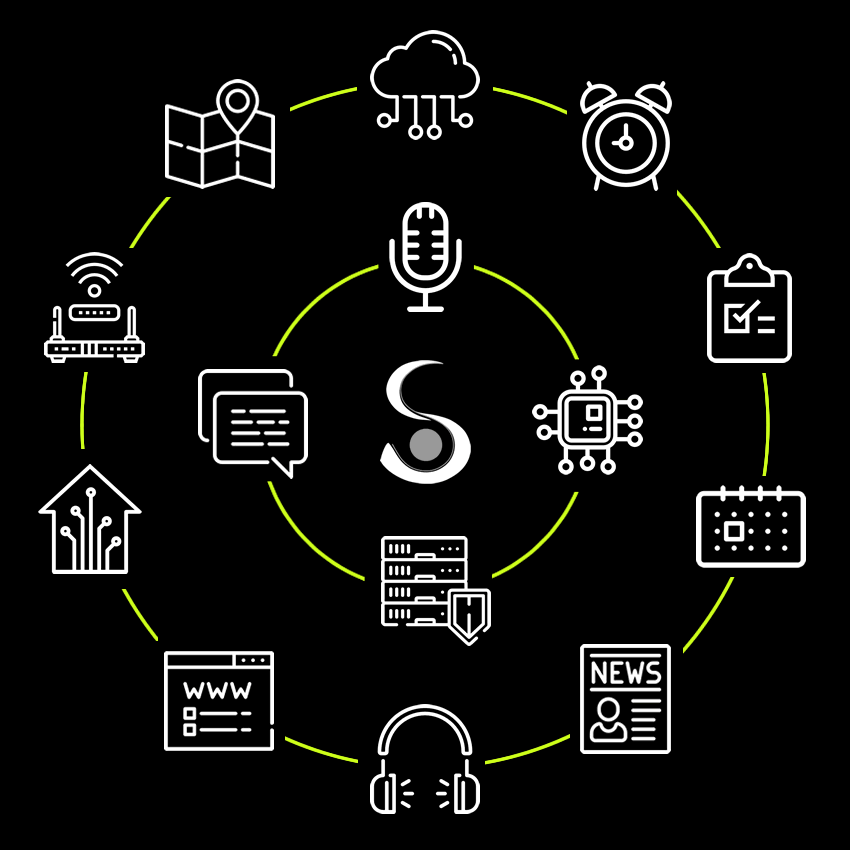Sepia Assist Server Save
Core server of the SEPIA Framework responsible for NLU, conversation, smart-service integration, user-accounts and more.
SEPIA Assist-Server
Part of the SEPIA Framework

This is the core server of the SEPIA Framework and basically the "brain" of the assistant. It includes multiple modules and microservices exposed via the Assist-API, e.g.:
- User-account management
- Database integration (e.g. Elasticsearch)
- Natural-Language-Understanding (NLU) and Named-Entity-Recognition (NER) (works out-of-the-box for German and English, but the modular NLU chain can use APIs and Python scripts as well)
- Conversation flow (aka interview-module)
- Answer-module
- Smart-services (integration of local-services like a to-do lists or cloud-services like a weather API with the NLU, conversation and answer modules)
- Remote-actions (e.g. receive data from IoT devices or wake-word tools)
- Embedded open-source Text-to-Speech integration (eSpeak, MaryTTS, picoTTS - Note: TTS can be handled via this server or inside the SEPIA client)
- ... and more
The SEPIA cross-platform-clients can access the RESTful Assist-API directly and exchange data in JSON format (e.g. for user authentication) or connect to the SEPIA chat-server to send and receive messages. SEPIAs running on this server can log-in to the WebSocket chat-server the same way a user does and communicated via channels with multiple users (or devices) at the same time.
The SEPIA Assist-Server operates as your own, self-hosted cloud-service and is designed to work the same way no matter if you run it on a Raspberry Pi for a small group of users in a private network or when you host it on multiple servers for a larger company network.
